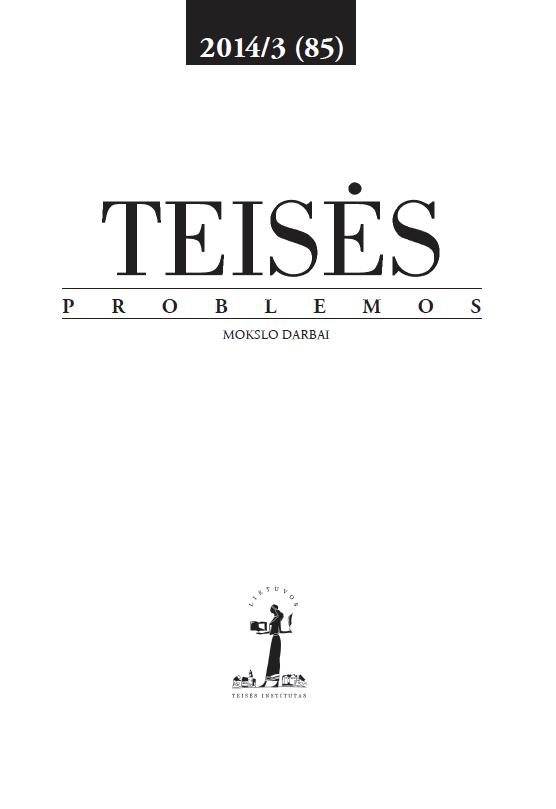Argumentavimas remiantis teisės principais: atkuriamasis ir plėtojamasis būdai
REASONING WITH LEGAL PRINCIPLES: RECONSTRUCTION AND DEVELOPMENT
Author(s): Johanas Baltrimas, Mindaugas LankauskasSubject(s): Law, Constitution, Jurisprudence, Political Philosophy, History and theory of political science, Philosophy of Law
Published by: Lietuvos teisės institutas
Summary/Abstract: In his dissenting opinion in Lochner v. New York case, O. W. Holmes famously stated that general propositions do not decide concrete cases. There are many others who claim similarly. Among them F. Schauer states that such concepts as liberty, equality do not strongly determine answers in legal questions – although not totally vague, they require additional premises in order to be applied in concrete cases. This study, among other questions, focuses on what these additional premises are when it comes to application of legal principles. Besides this, a goal is raised to seek out what views on application of legal principles are dominating in jurisprudence. Perhaps the most important topic in the study is the matter of two perspectives to reasoning with legal principles. One of them is linked with judicial restraint, it is based on a view that contents of a legal principle can be discovered through earlier cases where it made impact on decisions of judges or legislators. The other perspective is based on argument that positive law (the official and explicit legal texts) is not sufficient for proper dispute resolution and this is where legal principles come to aid – they are the artery through which law is supplied with moral, practical reasons. Based on these views the reconstructive and developmental method to apply principles are contemplated. The former is perceived as analysis and comparison of earlier cases where the disputed principle had impact on judge‘s or legislator‘s decision. Among factors which ought to be evaluated are similarity of these cases to the case which is being dealt with and how widespread is the principle (the variety of these cases). The developmental method is characterized as relying on factors which lie beyond boundaries of formal explicitly expressed law (practical arguments, arbitrator‘s inner sense of justice, etc.). Proper application of this method inter alia can be ensured by the principles of J. Rawls‘ inner position, by arbitrator‘s dissociation from peripheral inappropriate, subjective factors. Evaluation of these methods leads to conclusion that the reconstructive method contributes to legal certainty, easier foreseeing of judicial decisions, includes lesser risk of impartiality and similar factors, so it is superior when there is no or minimum need to develop the law. However, developmental method has the advantage of ensuring material justice and practical outcomes of judicial decision when it comes to cases where there is a strong need to develop the law.
Journal: Teisės problemos
- Issue Year: 2014
- Issue No: 85 (3)
- Page Range: 5-51
- Page Count: 47
- Language: Lithuanian

